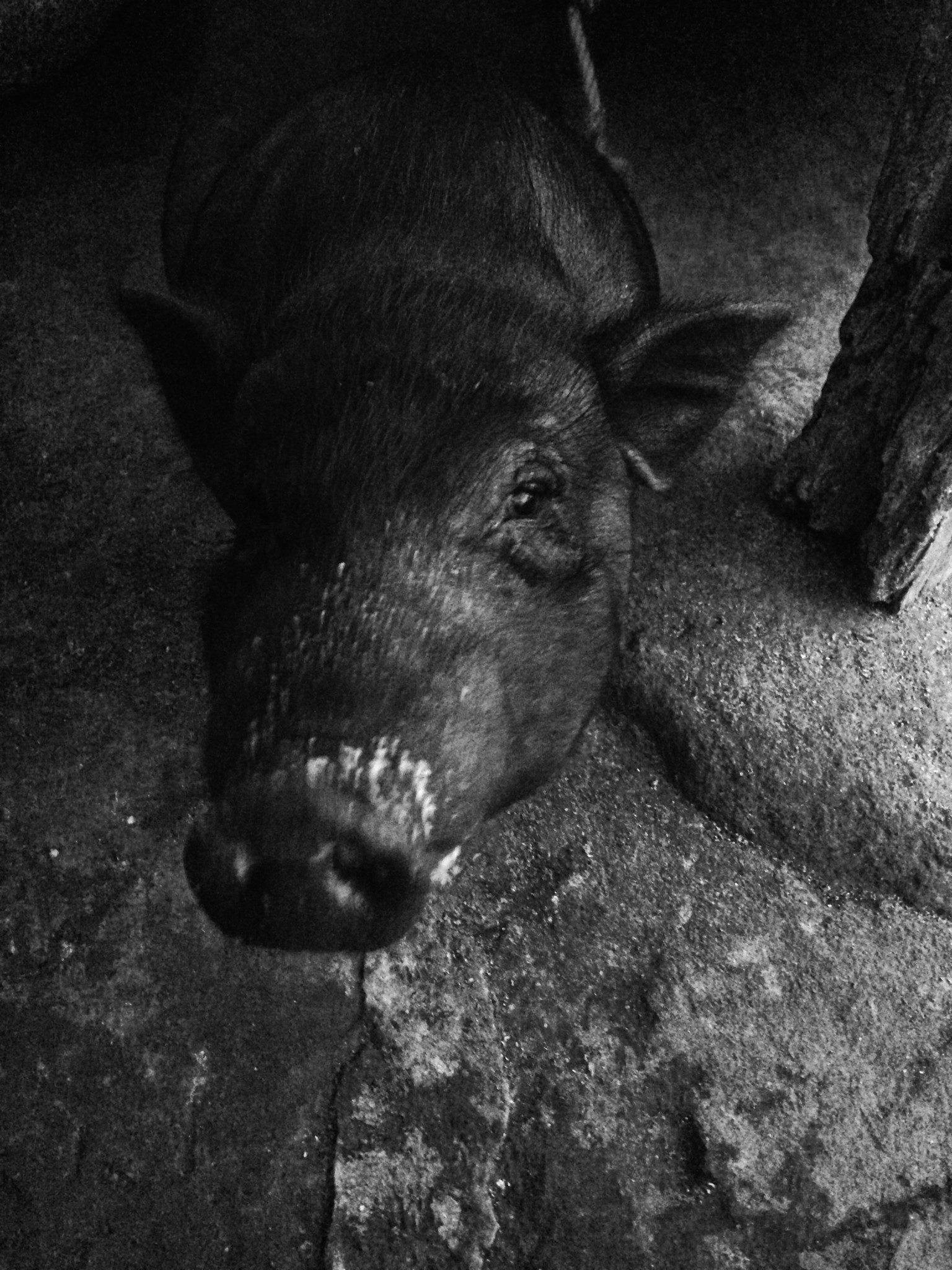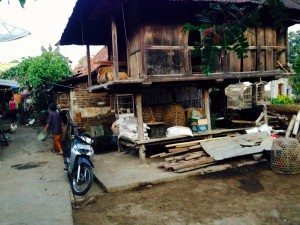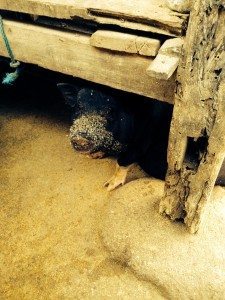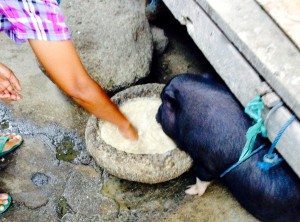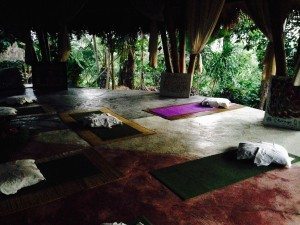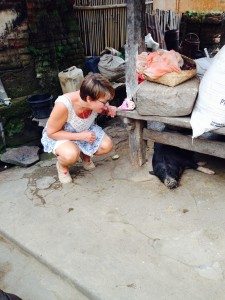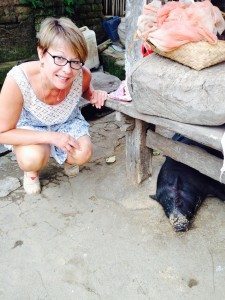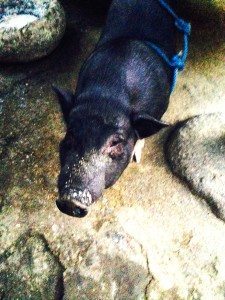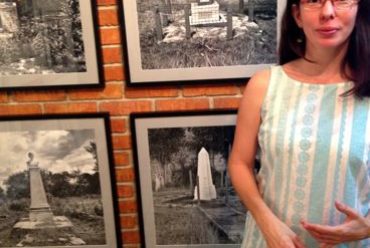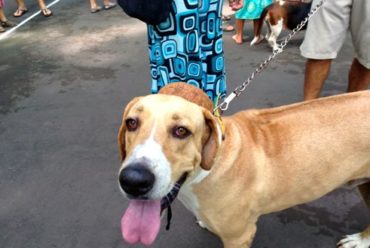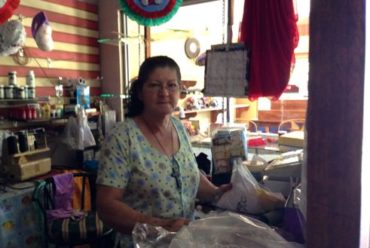What the Pig Said
While I was staying in a village home stay in rural Bali, my hosts owned about a dozen chickens and a pig.
I walked through their modest family compound several times a day, and each time I stopped to talk to the pig. He (or she—I didn’t check) always seemed happy to see me, wagging his little tail and moving his nose in my direction. I swear he wagged harder every time I told him he was beautiful.
I grew fonder of the little guy as each day passed, which you can surmise by checking my photo output. I have more pictures of the pig than I do the gorgeous waterfall we hiked to one day.
One morning, I got up early to meditate at the thatch-covered center before leading a yoga class. I stopped by to talk to the pig just as his caretaker set down his slop. Tail wagging, he said hello to me and then plunged his nose into the watery mixture.
His caretaker didn’t speak English, but we exchanged some pleasantries before she pointed at the pig, held up three fingers, and mimed slashing her throat.
There was no mistaking what she meant. Three days until barbecue. I tried to laugh it off with her, but I was disturbed. Deep down, I knew they didn’t keep the pig and the chickens for pets—clearly, the animals were a vital part of the sustenance for the family. While a small unit of the extended family is vegetarian (we got a full explanation from the young daughter who was horrified to know how the animals were killed), clearly the larger family and community depends upon the livestock for meat, and I suspect for celebration as well.
I shook off my concern and arrived at the yoga shelter, sitting on one of the small pillows provided. I set my timer and closed my eyes and was immediately hit with a profound sadness. I kept trying to put the pig out of my mind—but instead, he came to me very clearly to address my concerns.
I realize I might sound a little crazy, reporting a conversation with a pig in rural Bali, but the message was very clear and succinct. As I listened to him, tears ran down my face until I was sobbing. As soon as the one-sided conversation ended, I scribbled down the words so I could capture them in full. Here is what the pig said.
“Thank you for your kindness and telling me I am beautiful. I know people don’t always see the beauty in a lowly pig.
“Don’t be sad—I know my destiny and have worked every day to be the best pig I can be. I live with this kind, small family and soon I’ll bring joy and sustenance to them and others. What higher purpose could there be? It’s like a soldier who has been preparing for war his whole life.
“There is no higher honor than performing the task for which you were born.”
When I first learned about the pig’s fate, I posted a photo of him to my Facebook page, which set off a firestorm of feedback. Most people were horrified about my casual mention of his impending demise, concerned that I was about to enjoy a barbecue at his expense. A few people posted protests that one should never slaughter and eat an animal with which one has a personal relationship.
I know a few people who posted concerns were vegetarians like me. Had I been sitting miles away in the comfort of my home, unaware of the modest circumstances of the place, I might have reacted the same way. But how many of us enjoy the occasional burger or pork ribs or bacon or chicken breast with no awareness of where the meat came from? How many of us choose to deny the factory farms that shuttle thousands of animals through a joyless life and violent death? Compared to that existence, my pig had a king’s life.
I remain a vegetarian, and remain conflicted about the pig’s fate. But if he was right—that a pig can live a happy life within the confines of its final purpose, maybe we should only eat the animals we name and nurture and love.
At least, that’s what the pig said.

